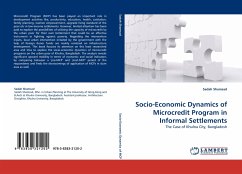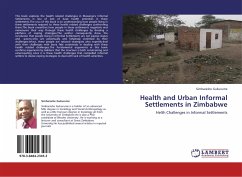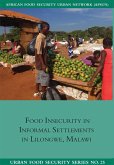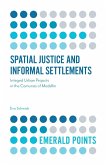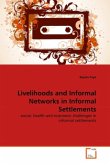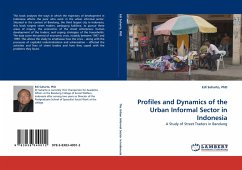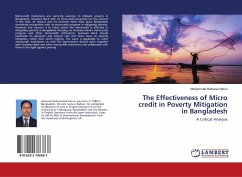Microcredit Program (MCP) has been played an important role in development activities like, productivity, education, health, sanitation, family planning, women empowerment, upgrade living standard of the poor etc in low-income settlements. However, limited attention has been paid to explore the possibilities of utilizing the capacity of microcredit by the urban poor for their own betterment that could be an effective instrument in fighting against poverty. Regarding the intervention inputs, local urban intervention initiated by the government with the help of foreign donor funds are mainly centered on infrastructure development. This book focuses its attention on this least researched area and tries to explore the socio-economic dynamics of microcredit programs on the urban poor of Khulna, Bangladesh. The analysis reveals significant upward mobility in terms of economic and social indicators by comparing between a pre-MCP and post-MCP period of the respondents and finds the shortcomings of application of MCPs in slum area as well.
Bitte wählen Sie Ihr Anliegen aus.
Rechnungen
Retourenschein anfordern
Bestellstatus
Storno

